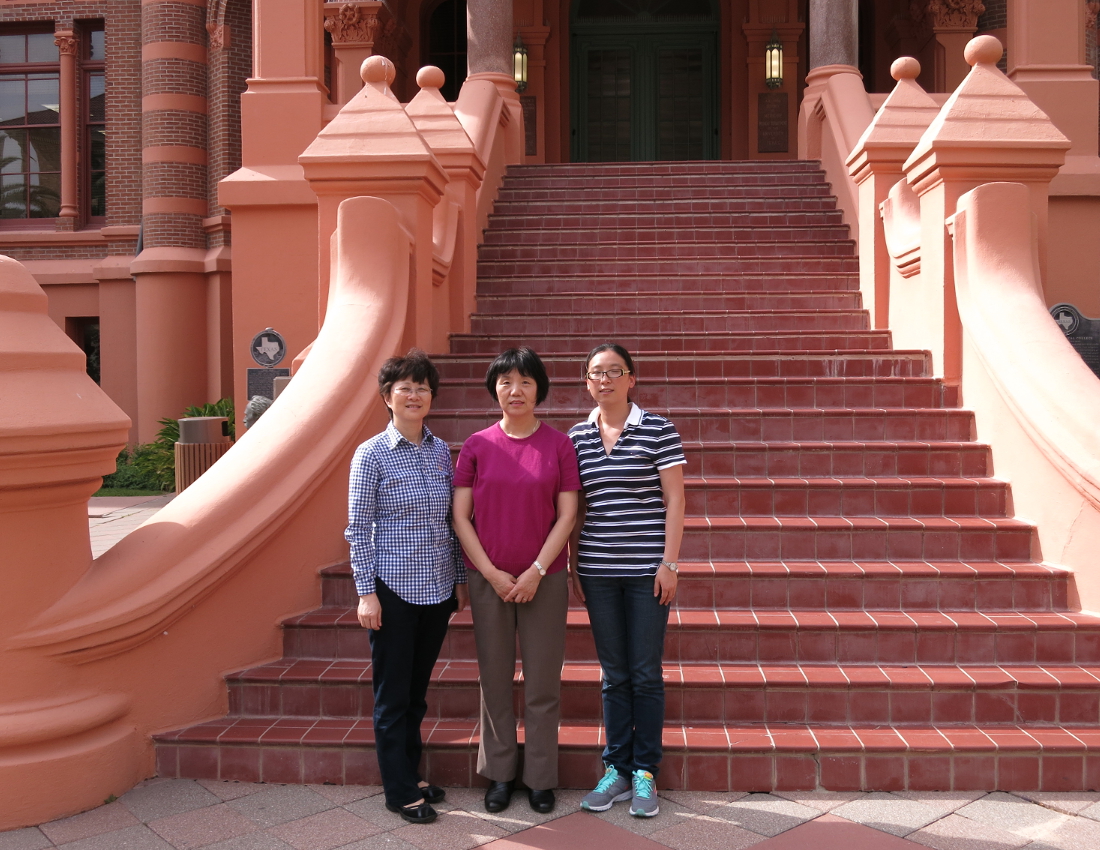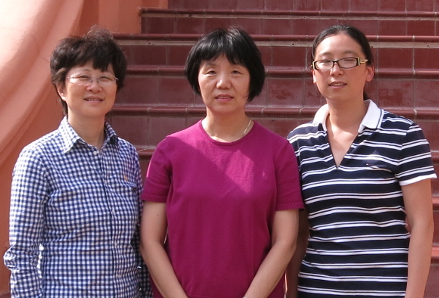We recently checked in with Dr Zhang Min from Guangzhou and Dr He Lei from Hangzhou, recipients of the 2015 IAMAT-China Travel Medicine Scholarship.
Min and Lei are participating in an eight week Tropical Medicine and Global Health course at the University of Texas Medical Branch (UTMB) in Galveston with Dr Lynn Soong, Professor of Microbiology/Immunology and Parasitology.
Both Min and Lei are certified travel health practitioners. Min was IAMAT’s first scholarship recipient in 2002 and has mentored many of her Chinese colleagues preparing for the ISTM Certificate in Travel Health examination.
The course covers epidemiology, clinical presentation, diagnosis, and treatment of tropical infectious diseases. Min and Lei are also learning about major global health challenges such as treatment options for patients with both HIV and tuberculosis, how healthcare systems operate in different countries, and issues related to cultural competence in global and local health settings. The course is a mix of theoretical and practical learning, including attending various clinics, group study, individual study, and case studies.

Min told us that the course gives her the skills and tools to better research and analyze scientific studies. She emphasized the importance of finding and analyzing the latest scientific information to make informed public health policy decisions and applying it to her travel medicine practice. Says Min:
Journal articles reveal a lot of information about different medical problems. To me, the process of information collection is not only a path to learn updated knowledge, but also a way to find a solution for making decisions. If the information I collected helps policymakers to do the right things in the future, then all the hard work I have done here is worthwhile. Youth will be our leaders in the future.
As for Lei, she noted several differences between travel clinics in the USA and China during her time at the UTMB infectious disease clinic. Here are some of the highlights of the course for Lei:
I like the clinic part and self-study. In the clinics, I can see some different (practices) than in China, and I hope what I’ve learned will improve Chinese travel clinics.
The itineraries, duration, and activities of travellers are quite different (at UTMB) than at the clinic where I work in China. Most travellers who come to our clinics are workers who are going to Africa, Southeast Asia, or South America for at least one year. If the travellers stay for a relatively long time abroad, they may not comply with travel advice. However, most travellers at UTMB travel clinics are going to South America, the Caribbean, or other developed countries for vacation.
Min and Lei will finish their course at the end of June. So far, IAMAT has awarded 25 travel medicine scholarships to health practitioners thanks to the generous donations from our members.
To learn more about IAMAT scholars and to donate to our Scholarship Fund, visit Our Scholars in Action.
By Daphne Hendsbee.
Photo courtesy of Professor Lynn Soong.



